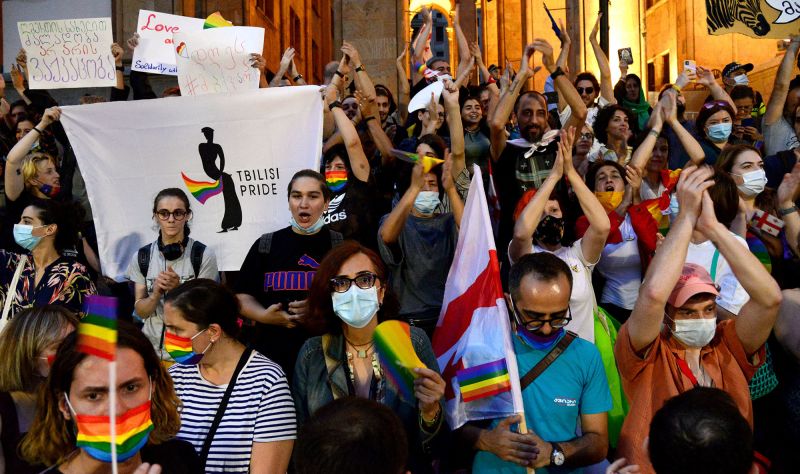In an unprecedented move on the Georgian political landscape, the Speaker of the Georgian Parliament recently assumed the controversial step of signing a law aimed at curbing the rights of lesbian, gay, bisexual, and transgender (LGBT) individuals within the country. This decision has sparked a series of heated debates, eliciting widespread attention from human rights organizations, political figures, and citizens alike.
The legislation in question appears to be a stark departure from the relative progression Georgian society has been making towards inclusivity and respect for human rights. As it currently stands, the law provides a significantly reduced degree of protection for the rights of the LGBT community, arguably creating an environment that fosters discrimination and inhibits progression towards equality.
The Speaker of Parliament, who has been hitherto known for his conservative ethos, aligned with traditional Georgian values, has defended the decision, asserting that the new law aligns with the country’s cultural, moral, and religious foundations. He argues that the measure is intended to uphold Georgian tradition and societal norms, pointing primarily to the predominance of the Georgian Orthodox Church and its stances on homosexuality.
However, this newly minted legislation has garnered considerable criticism from various sectors. Human rights advocates have expressed their profound concern, arguing that the implications of such a measure gravely impede the country’s advancement towards recognizing and upholding universal human rights. They insist that such shortcomings blatantly infringe on the rights of the LGBT community, ultimately engendering a legal landscape riddled with systemic discrimination and prejudice.
Internationally, the law has caught the eye of various bodies, with leading global institutions and non-governmental organizations taking notice. These entities argue that, despite a country’s sovereign right to legislate within its borders, such laws must also be within the confines of accepted international human rights norms. The European Union, a significant partner of Georgia, has issued a statement expressing ‘deep concern’ over such legislative approaches that infringe on personal freedoms and liberties.
Conversely, certain factions within Georgian society have heralded the move, reiterating the right of the country to uphold its traditions and cultural values against what they perceive as a tide of Western liberal norms. These factions maintain that the protection of traditional moral values stands paramount over the creeping influence of external cultural forces.
In touching on these sequences of events, it becomes clear that the recent legislative alteration in Georgia speaks volumes about the complexities of national legislation in the face of universal human rights. The controversy surrounding the new law exemplifies the rift between cultural preservation and the evolution of societal norms, a tug of war that continually redefines societal expectations and standards.
Beyond the borders of Georgia, this development underlines a more extensive debate about the extent to which international human rights norms can, or should, influence national legislation. This controversy has therefore not only exposed a fragile fault line within Georgian society but has also resurfaced important deliberations centering on the wider reach, and limitations, of international human rights law.
This law, and the responses it has inspired, invites a closer examination of tensions between cultural sovereignty and universally recognized principles of human rights, a conversation that extends far beyond the political and social boundaries of Georgia. While the long-term repercussions of this law remain to be seen, its introduction has undeniably cast a spotlight on the omnipresent debate over equal rights for LGBT individuals.




